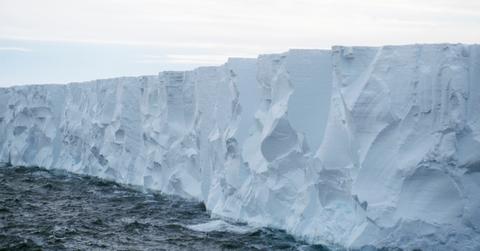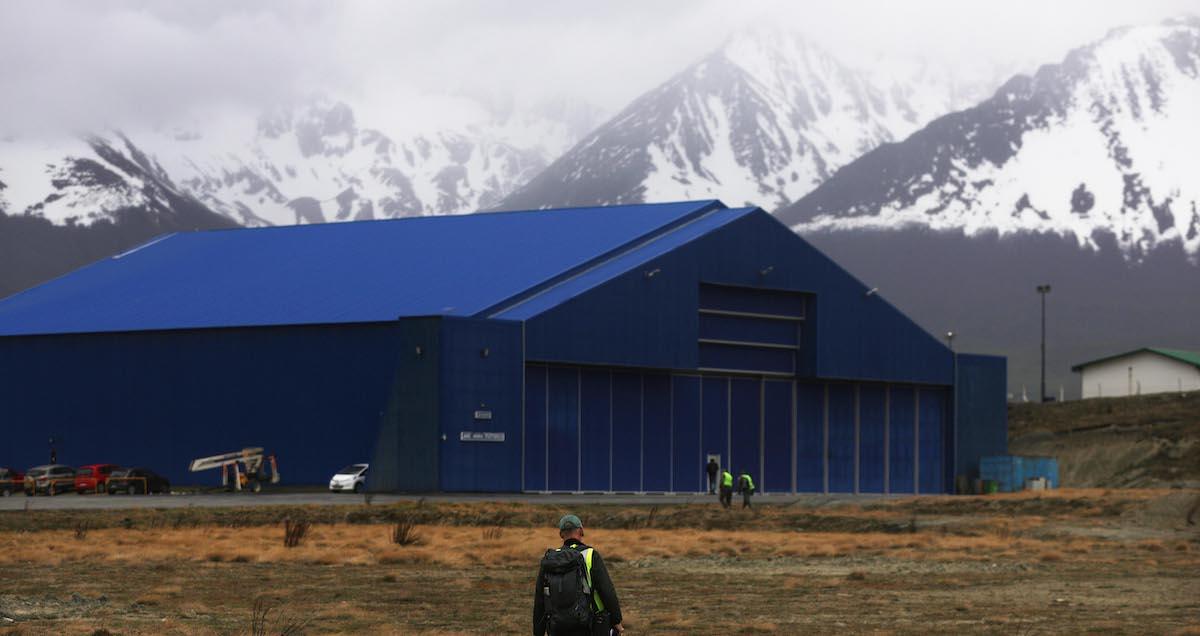Who Owns Antarctica? Several Countries Have a Territory Claim
The frigid continent of Antarctica recently had a historical discovery of an abandoned ship named "Endurance." Antarctica is mainly used for scientific research, but who owns it?
March 9 2022, Published 3:32 p.m. ET

Iceberg in the South ocean of Antarctica
When most people think of Antarctica, they think of it being the coldest place on earth with temperatures reaching -128.6 degrees Fahrenheit. Considering the extremely cold weather, Antarctica isn't the first place people think of when debating on places to move. Who owns Antarctica, if anyone at all?
According to the World Population Review, the ice-covered continent has a very small established population. Since most of the people who live in Antarctica are there for research purposes, the 37 permanent resident bases house the estimated 1,000–5,000 residents.

Antartica is governed by a system of treaties.
As with many other countries, the U.S. has a great interest in Antarctica, mainly for scientific purposes. Due to this interest, the U.S. was a leader in negotiating the Antarctic Treaty of 1959. The treaty was signed by 12 countries whose scientists were present in the region during the International Geophysical Year of 1957 and 1958.
According to the Secretariat of the Antarctic Treaty, the treaty is composed of three main articles:
- Antarctica will only be used to advance peaceful issues.
- “Freedom of scientific investigation in Antarctica and cooperation toward that end shall continue."
- Any scientific research and results from the continent must be widely available to access.
Seven countries have territory claims in Antarctica but none of them own it.
All seven countries possess territorial claims, however, the U.S. and Russia have a “basis of claim.” While the seven countries only have territory claims, Article IV of the treaty states, “No new claim or enlargement of an existing claim to territorial sovereignty in Antarctica shall be asserted while the present Treaty is in force.”

The Antarctic Treaty is just one of several that comprise the Antarctic Treaty System, which governs the continent. The others are the 1972 Convention for the Conservation of Antarctic Seals, the 1980 Convention on the Conservation of Antarctic Marine Living Resources, and the 1991 Environmental Protection to the Antarctic Treaty.
A historical ship was recent discovered in Antarctica.
As reported by NBC News this week, the 1915 exploration ship of Ernest Shackleton called Endurance was found off the coast of Antarctica. The ship’s discovery comes 100 years after Shackleton's death. When the ship first set out in 1914, it was Shackleton’s desire to make the first land crossing of Antarctica. However, the ship never made it to the icy continent and was instead caught in an extremely dense pack of ice.
The ship was reportedly stuck for 10 months before Shackleton and his crew decided to abandon the ship in lifeboats. According to The Wall Street Journal, the director of the Falklands Maritime Heritage Trust, Mensun Bound said, “This is by far the finest wooden shipwreck I have ever seen. It is upright, well proud of the seabed, intact, and in a brilliant state of preservation.” The area where the ship was discovered will be designated as a Historic Site and Monument protected by the Antarctic Treaty.
